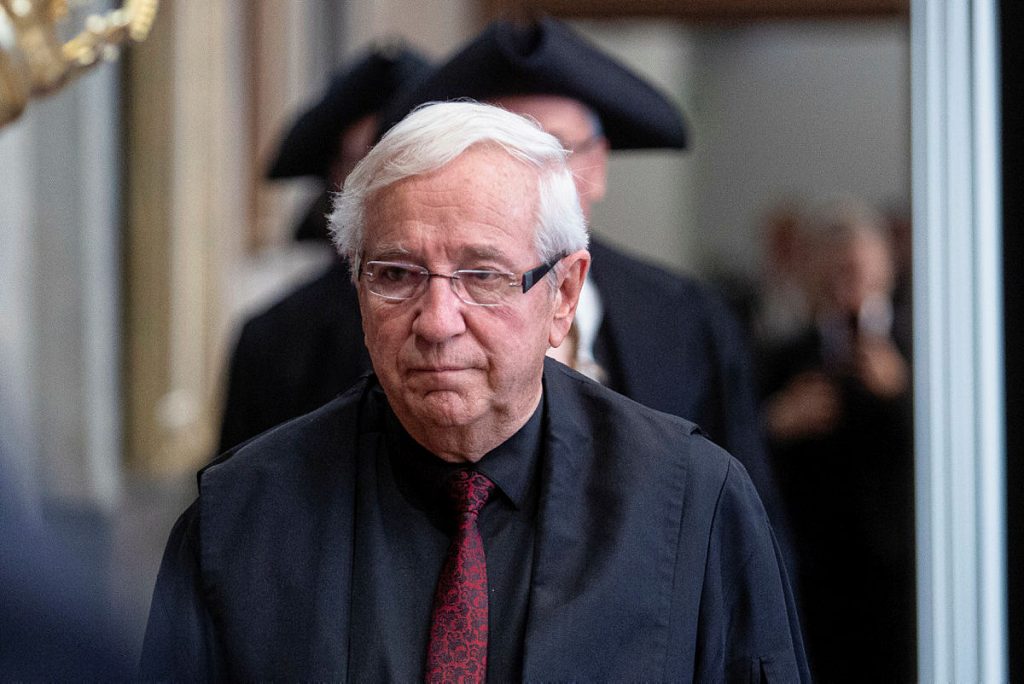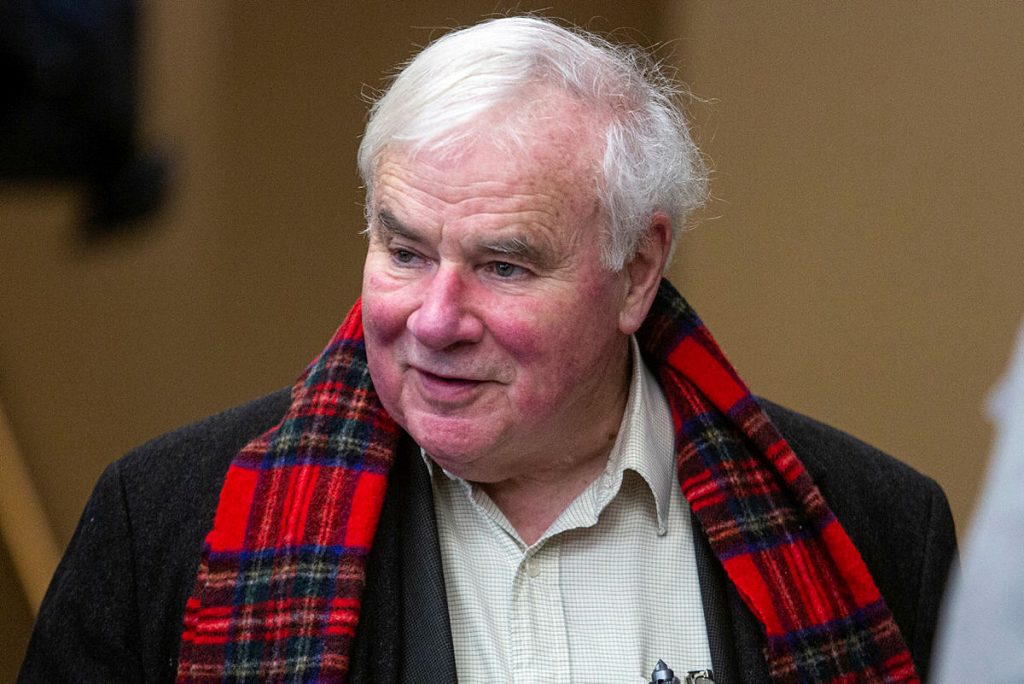At least seven Liberal and Conservative MPs running for coveted House Speaker’s post

When Parliament returns on May 26, the first order of business will be electing a new House Speaker, and at least seven MPs have entered the race for the coveted position that comes with a total salary of $309,700, and an office budget of $1.4-million.
Among them are incumbent House Speaker Greg Fergus (Hull-Aylmer, Que.), Liberal MPs Rob Oliphant (Don Valley West, Ont.), Sean Casey (Charlottetown, P.E.I.), Sherry Romanado (Longueuil–Charles-LeMoyne, Que.), Francis Scarpaleggia (Lac-Saint-Louis, Que.), and Conservative MPs Chris d’Entremont (Acadie–Annapolis, N.S.) and Tom Kmiec (Calgary Shepard, Alta.). All candidates have been actively reaching out to their colleagues through emails and phone calls to secure support.
“I was first elected in 2008 and served over 12 years in the House,” wrote Oliphant in his email to colleagues seeking their support, highlighting his past experience as committee chair, parliamentary secretary, and serving in majority and minority governments. “I have been in opposition and in government. I have served in both minority and majority Parliaments. I love the House of Commons and the cut and thrust of debate. I have a strong understanding of the standing orders and the rules of procedure that govern our work in the Chamber and in committee.”
The House Speaker is also the chair of the powerful House Board of Internal Economy Committee, and oversees the Commons’ annual budget of approximately $656.5-million. The House administration, procedure, legal services, security, and maintenance divisions all report to the House Speaker.
In the House, the Speaker leads the team of deputy and assistant speakers, chairs the parliamentary proceedings including the daily 45-minute Question Period when the Parliament is in session, interprets rules and traditions, manages procedure, and maintains decorum, and is the steward of MPs’ rights and privileges. The Speaker does not participate in the House debates, and votes only if there’s a tie. House Speakers do not attend weekly national caucus meetings that take place on the Hill every Wednesday morning when the House is sitting.
In last month’s federal election, the Liberals won 170 seats, the Conservatives 143, the Bloc Québécois 22, the NDP seven, and the Greens one. In the 343-seat House of Commons, a party needs 172 seats to form a majority government. The governing Liberals are currently in a minority, and are just two MPs short of a majority. If a Liberal is elected Speaker, they would only be able to vote in the event of a tie—potentially weakening the government’s position. It’s not uncommon for opposition parties to test whether the government still holds the confidence of the House in such situations—sometimes ambushing the government either in an attempt to bring it down, or simply to cause mischief.

It was unclear last week if the Liberal leadership would allow their caucus members to enter the race for this reason.
Casey told The Hill Times that as of May 21 there had been no discussion on this subject, and if the caucus collectively decided not to put forward a candidate, he would respect that decision and refrain from running.
“If there was to be a collective decision made to not put up a Liberal to run, I would abide by the will of the caucus in that regard,” said Casey, who in the past has chaired two House committees and has served as parliamentary secretary to three cabinet ministers.
“I have heard some people who hold that opinion. I expect that some of them will probably rank the Conservative candidates higher than the Liberal candidates on the ballot, and if that happens, that’s their right. But if there was to be a co-ordinated approach that required me to stand down, I would respect the will of the caucus.”
Meanwhile, in his pitch to caucus colleagues to be re-elected for this role, Fergus, who served as the House Speaker from October 2023 until now, wrote: “One does not instantly become Speaker upon donning the robes and taking the chair,” he wrote in his email to all MPs on May 18. “One becomes Speaker through experience. I now have this experience. I seek your support to continue what I started with greater depth and discipline so that Parliament gets to the business that each of our electors sent us to Ottawa to do.”
In his letter to MPs, Scarpaleggia underscored his experience of serving in both minority and majority Parliaments, noting that six of the eight Parliaments he has been part of were minority governments.
“My experience over two decades as a Member of Parliament has provided me with a unique perspective on the dynamics of the House of Commons and its potential for informative, constructive and orderly debate that benefits us both as parliamentarians and the Canadians we serve,” Scarpaleggia wrote in his email to MPs.
Scarpaleggia also served as the national Liberal caucus chair for two terms. “I am particularly well-versed in the dynamics of minority Parliaments: of the eight mandates I have earned owing to the support of the good people of Lac-Saint-Louis six have been minority mandates.”
In her pitch to MPs, Romanado emphasized that her roles as deputy leader of the House, a member of the Procedure and House Affairs Committee, and chair of the House Industry Committee have equipped her well to serve as the next Speaker.
“Our Parliament is the heart of Canadian democracy—a place where ideas are tested, voices are heard, and decisions are made on behalf of the people we serve,” wrote Roamanado. “The role of Speaker is not only to preside over debate and ensure the rules are upheld, but also to safeguard the dignity of the institution and foster an environment where respectful, effective discourse can thrive.”
All candidates vying for the Speaker’s role pledged to restore decorum in the House, vowing to make it a key priority if elected.

“During my time in Parliament and prior to my time in elected office, Speakers have repeatedly tried to enforce decorum by interrupting the debate or questions and chastising MPs for bringing disorder to the House,” wrote Kmiec in his letter to MPs.
“This has not worked. Decorum has not improved. It has brought the Speaker into sharp conflict with MPs instead of their role as facilitator. I will enforce the rules known as our standing orders as they exist and are written. Words should be weighed, not counted. Your constituents should judge your behaviour, not the Speaker.”
D’Entremont, who was the first to enter the House Speaker’s election race, told The Hill Times earlier this month that he has received positive feedback from his colleagues. In his pitch, the Nova Scotia MP emphasized the need for a strong Speaker in a minority Parliament and said his previous experience as deputy Speaker, along with his service in the House, makes him well-suited for the role. He cited former House Speaker Peter Milliken—who served during three minority Parliaments in 2004, 2006, and 2008—as his inspiration.
The House Speaker election takes place through a secret ranked ballot, and voting will take place in person in the Commons Chamber. Under the ranked-ballot system, MPs will vote for all candidates in order of preference. If no one wins 50 per cent plus one of the votes after the first ballot, the ballots belonging to the candidate who ranked last are eliminated, and their votes will go to the remaining candidates. This process continues until one of the candidates receives the majority of the vote. MPs cast their votes only once, but ballots continue to be redistributed by dropping the last-place finisher until a clear winner emerges.
As the longest-serving MP in the Commons, Bloc Québécois MP Louis Plamondon (Bécancour-Nicolet-Saurel, Que.), who was first elected in 1984 as a Progressive Conservative under Brian Mulroney’s massive majority win, will oversee the House Speaker’s election. All MPs are automatically considered candidates in the Speaker’s election unless they formally withdraw their names, which they can do up until the start of the first sitting of the House and after a federal election.
The Speaker is like the mayor of the House. In addition to the $99,900 top-up on the base MP salary of $209,800, the position comes with several perks, including an official residence in the Gatineau Hills known as The Farm or Kingsmere, a private apartment in the West Block, a chauffeur, and an office budget. The Speaker also travels abroad on inter-parliamentary missions, hosts receptions for diplomats and visiting heads of state, and regularly represents Canada on the international stage.
The Hill Times






 LICENSING
LICENSING PODCAST
PODCAST ALERTS
ALERTS













